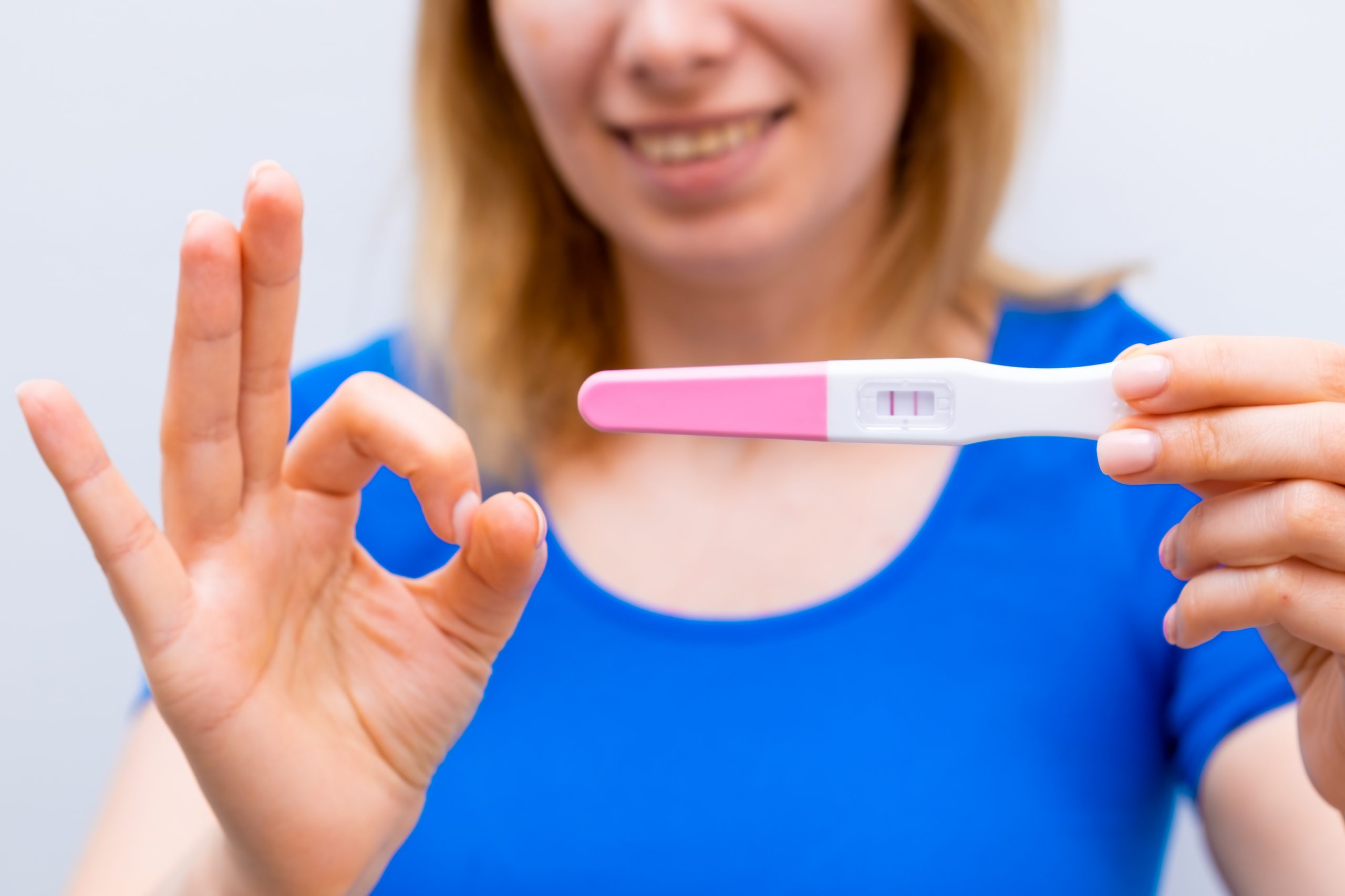Navigating the landscape of your first pregnancy can feel like exploring the unknown terrain of a new planet! Out here, on Planet Pregnancy, every twinge, mood fluctuation, and food craving sends a message from your changing body. Understanding these signals — specifically first trimester symptoms — is crucial to embarking on this exciting journey with confidence and peace of mind. So strap in, future moms: we’re about to dive deep into decoding those early pregnancy mysteries. Knowing what to expect offers reassurance that it’s not just you – it’s also the new life blossoming inside you!
The most common symptoms of pregnancy include missed periods, tender and swollen breasts, nausea (with or without vomiting), increased urination, and fatigue. Other less obvious signs can include moodiness, bloating, light spotting (known as implantation bleeding), cramping, constipation, food aversions, and nasal congestion. It’s important to note that these symptoms can vary from person to person, and it’s always best to take a home pregnancy test or consult a healthcare provider for confirmation.
Table of Contents
Early Pregnancy Symptoms
The first trimester is a time of rapid change, both for your body and your emotions. For many women, it’s also the time when they begin to notice some symptoms of pregnancy. While not every woman experiences the same symptoms or severity of symptoms, there are a few early pregnancy symptoms that are worth being aware of.
Some women may experience fatigue, morning sickness, breast tenderness, and frequent urination. Other less common early pregnancy symptoms include mood swings, headaches, constipation, and bloating.
- According to the American Pregnancy Association, over 70% of women experience nausea and vomiting in their first trimester.
- The National Health Service reports that about 90% of women experience at least one symptom, such as fatigue, tenderness in breasts, or frequent urination by the time they are 8 weeks pregnant.
- Based on a study in Obstetrics & Gynecology, about one-third (33%) of women have implantation bleeding or spotting during early pregnancy.
Missed Period
One of the most telling signs of pregnancy is a missed period. This happens because as soon as the fertilized egg implants itself into the lining of your uterus, your body begins to produce a hormone called human chorionic gonadotropin (hCG). It’s this hormone that triggers changes in your body, including stopping ovulation and thickening the lining of your uterus.
A missed period can be an exciting or nerve-wracking sign depending on one’s personal circumstances. Let’s examine what it means in more detail.
For those hoping to conceive or try to avoid getting pregnant and have missed their period, it’s important to keep in mind that different factors can cause late periods besides pregnancy. Stress, extreme weight gain/loss or regular exercise changes are just some factors which could affect menstrual cycles. If you’re unsure whether or not you’re pregnant, it’s always best to take a home pregnancy test and/or consult with a healthcare provider for confirmation.
If you are pregnant but suddenly experience light bleeding around the time your period is due (referred to as implantation bleeding), don’t worry as this doesn’t necessarily mean complications. However, if bleeding continues heavily or accompanied by passing clots and cramping, it could be a sign of miscarriage or ectopic pregnancy – both requiring urgent medical attention.
There’s no fixed timeline for when expectant mothers usually miss their period, but it’s typically around two weeks after ovulation. A late period accompanied with other early pregnancy symptoms may indicate a high chance of pregnancy, suggesting taking a home test to confirm.
Breast Changes
One of the most common first trimester pregnancy symptoms is breast changes. As early as two weeks after conception, you may notice your breasts feeling sore and tender to touch due to hormonal changes in your body. Your nipples may also become more sensitive, and you might experience tingling or prickling sensations. These changes are a result of increased blood flow to your breasts, preparing them for milk production once the baby arrives.
It’s important to note that not all women experience breast changes during the first trimester, and the severity of these symptoms can vary from person to person. For some expectant mothers, breast tenderness can make wearing a bra uncomfortable, while others might not feel any discomfort at all.
Think of these changes like preparing for a big event where you want everything to look perfect- it takes time, effort, and some discomfort to achieve the desired result in the end.
Nausea
Nausea is another symptom that many expectant mothers experience during their first trimester. Commonly known as morning sickness, nausea is characterized by a queasy feeling in the stomach and may or may not be accompanied by vomiting. While it can happen at any point during the day or night, it is often more pronounced upon waking up in the morning.
The exact cause of nausea during pregnancy isn’t fully understood but is thought to be due to hormonal changes in the body’s digestive system. It’s worth noting that some women may not experience nausea at all, while others may have severe nausea throughout their entire pregnancy.
To combat this symptom, many pregnant women find eating small meals throughout the day helpful. Others find ginger tea or ginger candies helpful for settling their stomachs.
It’s crucial to stay hydrated during this period and seek medical attention if you’re vomiting multiple times throughout the day or if combined with other symptoms such as fever or stool abnormalities.
As we’ve seen, breast changes and nausea are just some of the common first-trimester symptoms that women experience. It’s important to note that pregnancy symptoms vary from person to person, and some may not experience any at all. In our next section, we’ll highlight some lesser-known first-trimester symptoms you need to be aware of.
Lesser Known Pregnancy Symptoms
You may have already heard of common early pregnancy symptoms such as morning sickness, fatigue, and breast tenderness. However, did you know that there are other lesser-known symptoms that some women may experience during the first trimester? These can range from mild discomfort to severe and can leave soon-to-be moms wondering what’s going on with their bodies. Let’s explore two of these symptoms below.
Fatigue and Frequent Urination
As your body undergoes hormonal changes during pregnancy, fatigue is one symptom that shouldn’t come as a surprise. The body needs more energy to develop the placenta and support your growing baby, leading to feelings of exhaustion even with minimal activity. Combine this with waking up frequently at night due to increased urination, and it’s easy to feel worn out before the day even starts.
Many pregnant women describe feeling as though they’ve run a marathon by the end of each day, regardless of how little or much they do. During my first trimester, I remember feeling like I’d suddenly been hit by a truck – I fell asleep at my desk at work on several occasions!
Early on, frequent urination happens because the uterus is still small enough to fit inside the pelvic area.Thus as your uterus grows, it places pressure on your bladder and you might find yourself needing to visit the bathroom more often.
It’s important not to try and ignore these feelings of exhaustion or hold in urine for long periods of time. Instead, take regular naps when possible and allow yourself some rest time. Going to bed earlier or taking short breaks during your workday can also be helpful.
With an understanding of fatigue and frequent urination as lesser-known pregnancy symptoms let’s break down what causes this fatigue, how it affects daily life and what you can do about it.
Cramping and Spotting
The first trimester can be an exciting time for expecting mothers, but it can also cause worry and anxiety, particularly when symptoms like cramping and spotting occur. It’s normal to experience mild cramps during early pregnancy since the uterus is expanding to accommodate the growing embryo. However, if the pain is sharp or severe or accompanied by heavy bleeding, it might indicate that a miscarriage is imminent. Spotting can also occur due to implantation of the fertilized egg on the uterine wall. But if it persists or becomes heavy, you should contact your healthcare provider immediately.
The Role of Pregnancy Hormones
Fatigue and frequent urination can be some of the first symptoms that occur during early pregnancy. These can start as early as just a few weeks after conception due to hormonal changes.
During pregnancy, progesterone levels increase, leading to drowsiness that can leave you feeling like you’re walking through quicksand. The body needs more energy to support your growing baby, and this leads to feelings of exhaustion even with minimal activity.
The development of the embryo also triggers early changes in hormonal levels, which increase blood flow to the pelvic region and kidneys. This results in an increased urge to pee.
You may find yourself waking up multiple times at night or needing to use the bathroom more frequently throughout the day. Additionally, your body temperature might be slightly higher than usual due to increased blood flow which could add to uncomfortable feelings.
Given that fatigue and frequent urination are such pervasive pregnancy symptoms it’s essential to know how best to manage them on a daily basis.
- The takeaway from the provided information is that fatigue and frequent urination are common symptoms of early pregnancy due to hormonal changes and increased blood flow. It is important for pregnant individuals to understand and manage these symptoms on a daily basis.
Fluctuating Levels of Estrogen and Progesterone
Amidst the changes happening in the body during pregnancy, hormones play a critical role in shaping how an expectant mother feels and behaves. Hormones are responsible for numerous processes throughout the body during pregnancy and any fluctuations can lead to various symptoms like morning sickness, fatigue, mood swings, and more. Let’s explore some of the chemicals at work:
- Human chorionic gonadotropin (hCG): This hormone is produced during early pregnancy and a significant increase in levels triggers nausea and vomiting.
- Progesterone: Progesterone helps maintain a healthy pregnancy by dilating blood vessels in the uterus. It also relaxes muscle tissues leading to constipation.
- Estrogen: Responsible for breast enlargement, estrogen increases vaginal secretions during early pregnancy.
One particular example of hormones affecting women differently is serotonin, a chemical that impacts mood. Women who are pregnant produce more serotonin than they typically would, which might explain why some feel moody while others are at peace.
It’s important to note that not all women experience every symptom or reported hormonal changes consistently. Every woman’s pregnancy journey is unique, and their symptoms will vary based on many factors outside of just hormonal fluctuation.
Handling First Trimester Symptoms
The first trimester is a time of immense hormonal changes that can contribute to a variety of symptoms. For instance, the embryo begins developing rapidly, prompting your body to produce higher levels of estrogen and progesterone, two hormones that play a vital role in maintaining pregnancy. But broader than this lies a host of reasons why these fluctuations cause such an array of symptoms.
Think of fluctuating estrogen and progesterone levels like the tides – they can ebb and flow over time and create significant changes in mood and physical wellbeing.

Elizabeth Baker is a mother of three, wife, and the passionate mind behind this pregnancy and baby development resource. She balances her love for understanding every stage of child growth with her duties as a parent. When she’s not sharing her experiences or studying child development, Sarah enjoys family time, reading, and practicing yoga. She believes in the power of shared knowledge to enhance the beautiful journey of parenthood. Read more About me.
